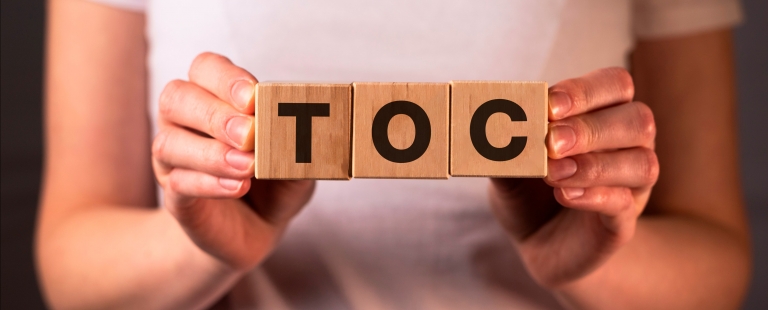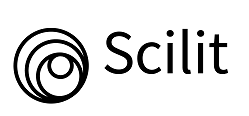Tendencias emergentes en el tratamiento del trastorno obsesivo-compulsivo: una revisión de la literatura
DOI:
https://doi.org/10.25118/2763-9037.2024.v14.1309Palabras clave:
trastorno obsesivo-compulsivo, TOC, terapia cognitivo-conductual, farmacoterapia, neuromodulación, intervenciones digitales, investigación genética, terapias integrativas, TOC pediátricoResumen
El trastorno obsesivo-compulsivo (TOC) es una afección de salud mental crónica y debilitante caracterizada por pensamientos persistentes e intrusivos y comportamientos repetitivos. Los tratamientos tradicionales, incluida la terapia cognitivo-conductual (TCC) y la farmacoterapia, han demostrado eficacia, pero a menudo están limitados por una respuesta parcial y altas tasas de recaída. Esta revisión de la literatura examina las tendencias emergentes en el tratamiento del TOC, destacando los avances en psicoterapia, nuevos agentes farmacológicos, técnicas de neuromodulación, intervenciones digitales, investigación genética y de biomarcadores, y terapias integrativas. Además, explora enfoques personalizados para poblaciones pediátricas y analiza las direcciones y desafíos futuros en este campo. La revisión subraya el potencial de estos tratamientos innovadores para mejorar los resultados terapéuticos y mejorar la calidad de vida de las personas con TOC.
Descargas
Métricas
Citas
American Psychiatric Association. Diagnostic and statistical manual of mental disorders: DSM-5. 5th ed. Washington: American Psychiatric Association; 2013. https://doi.org/10.1176/appi.books.9780890425596
National Institute of Mental Health. Obsessive-Compulsive Disorder (OCD). Bethesda: National Institute of Mental Health; [cited 2007 Feb 23]. https://www.nimh.nih.gov/health/statistics/obsessive-compulsive-disorder-ocd
Ruscio AM, Stein DJ, Chiu WT, Kessler RC. The epidemiology of obsessive-compulsive disorder in the National Comorbidity Survey Replication. Mol Psychiatry. 2010;15(1):53-63. https://doi.org/10.1038/mp.2008.94 PMID:18725912 - PMCID:PMC2797569
Veale D, Roberts A. Obsessive-compulsive disorder. BMJ. 2014;348:g2183. https://doi.org/10.1136/bmj.g2183 PMID:24709802
Phillips KA, Stein DJ. Obsessive-Compulsive Disorder (OCD). [place unknown]: MSD Manual Professional Version; 2023. https://www.msdmanuals.com/professional/psychiatric-disorders/obsessive-compulsive-and-related-disorders/obsessive-compulsive-disorder-ocd
Burkle JJ, Fendel JC, Schmidt S. Mindfulness-based and acceptance-based programmes in the treatment of obsessive-compulsive disorder: a study protocol for a systematic review and meta-analysis. BMJ Open. 2021;11(6):e050329. https://doi.org/10.1136/bmjopen-2021-050329 PMID:34172553 - PMCID:PMC8237723
International OCD Foundation. Transcranial Magnetic Stimulation (TMS) for OCD. Boston: International OCD Foundation; c2024. https://iocdf.org/about-ocd/treatment/tms/
Kelly, O. OCD medications: how antidepressants and antipsychotics can help. New York: Verywell Mind; 2024. https://www.verywellmind.com/medications-to-treat-ocd-2510644
Del Casale A, Sorice S, Padovano A, Simmaco M, Ferracuti S, Lamis DA, Rapinesi C, Sani G, Girardi P, Kotzalidis GD, Pompili M. Psychopharmacological treatment of obsessive-compulsive disorder (OCD). Curr Neuropharmacol. 2019;17(8):710-36. https://doi.org/10.2174/1570159x16666180813155017 PMID:30101713 - PMCID:PMC7059159.
Finch R, Vargas BE. We tried 100+ therapy services and apps-and we recommend these 8 for online CBT. New York: Verywell Mind; 2024. https://www.verywellmind.com/online-cbt-therapy-7371586
Akhouri D, Hamza, Kumar S, Reyazuddin M. Acceptance and commitment therapy as an add-on treatment for the management of patients with obsessive-compulsive disorder. Ind Psychiatry J. 2023;32(Suppl 1):S179-85. https://doi.org/10.4103/ipj.ipj_213_23 PMID:38370965 - PMCID:PMC10871435
Olivine A. What is mindfulness therapy? Mindfulness-based cognitive behavioral therapy and cognitive therapy, MBCBT, MBCT. New York: Verywell Health; 2024. https://www.verywellhealth.com/mindfulness-therapy-5212796
Bommarito S, Morris M. The role of antipsychotics in OCD. Silver Spring: Anxiety and Depression Association of America; 2023. https://adaa.org/learn-from-us/from-the-experts/blog-posts/professional/role-antipsychotics-ocd
Huang Y, Weng Y, Lan L, Zhu C, Shen T, Tang W, Lai HY. Insight in obsessive-compulsive disorder: conception, clinical characteristics, neuroimaging, and treatment. Psychoradiology. 2023;3:kkad025. https://doi.org/10.1093/psyrad/kkad025 PMID:38666121 - PMCID:PMC10917385
Garakani A, Freire RC, Buono FD, Thom RP, Larkin K, Funaro MC, Salehi M, Perez-Rodriguez MM. An umbrella review on the use of antipsychotics in anxiety disorders: a registered report protocol. PLoS One. 2022;17(6):e0269772. https://doi.org/10.1371/journal.pone.0269772 PMID:35709149 PMCID:PMC9202921
Food and Drug Administration. FDA permits marketing of transcranial magnetic stimulation for treatment of obsessive compulsive disorder. Silver Spring: Food and Drug Administration; 2018. https://www.fda.gov/news-events/press-announcements/fda-permits-marketing-transcranial-magnetic-stimulation-treatment-obsessive-compulsive-disorder
Tendler A, Blackman S. Achieving OCD relief: consideration of TMS earlier in the treatment continuum. Cranbury: Psychiatric Times; 2023. https://www.psychiatrictimes.com/view/achieving-ocd-relief-consideration-of-tms-earlier-in-the-treatment-continuum
Karas PJ, Lee S, Jimenez-Shahed J, Goodman WK, Viswanathan A, Sheth SA. Deep brain stimulation for obsessive compulsive disorder: evolution of surgical stimulation target parallels changing model of dysfunctional brain circuits. Front Neurosci. 2019;12:998. https://doi.org/10.3389/fnins.2018.00998 PMID:30670945 - PMCID:PMC6331476
Groves DA, Brown VJ. Vagal nerve stimulation: a review of its applications and potential mechanisms that mediate its clinical effects. Neurosci Biobehav Rev. 2005;29(3):493-500. https://doi.org/10.1016/j.neubiorev.2005.01.004 PMID:15820552
Aspvall K, Andersson E, Melin K, Norlin L, Eriksson V, Vigerland S, Jolstedt M, Silverberg-Morse M, Wallin L, Sampaio F, Feldman I, Bottai M, Lenhard F, Mataix-Cols D, Serlachius E. Effect of an internet-delivered stepped-care program vs in-person cognitive behavioral therapy on obsessive-compulsive disorder symptoms in children and adolescents: a randomized clinical trial. JAMA. 2021;325(18):1863-73. https://doi.org/10.1001/jama.2021.3839 PMID:33974020 - PMCID:PMC8114140
McGrath P. Can exercise help with OCD? Chicago: NOCD; 2021. https://www.treatmyocd.com/blog/can-exercise-help-with-ocd
Hedman E, Furmark T, Carlbring P, Ljotsson B, Ruck C, Lindefors N, Andersson G. A 5-Year follow-up of internet-based cognitive behavior therapy for social anxiety disorder. J Med Internet Res. 2011;13(2):e39. https://doi.org/10.2196/jmir.1776 PMID:21676694 - PMCID:PMC3221374
Stein DJ, Costa DLC, Lochner C, Miguel EC, Reddy YCJ, Shavitt RG, van den Heuvel OA, Simpson HB. Obsessive-compulsive disorder. Nat Rev Dis Primers. 2019;5(1):52. https://doi.org/10.1038/s41572-019-0102-3 PMID:31371720 PMCID:PMC7370844
Mahjani B, Bey K, Boberg J, Burton C. Genetics of obsessive-compulsive disorder. Psychol Med. 2021;51(13):2247-59. https://doi.org/10.1017/s0033291721001744 PMID:34030745 PMCID:PMC8477226
Pauls DL, Abramovitch A, Rauch SL, Geller DA. Obsessive-compulsive disorder: an integrative genetic and neurobiological perspective. Nat Rev Neurosci. 2014;15(6):410-24. https://doi.org/10.1038/nrn3746 PMID:24840803
Jiang C, Zou J, Lv Q, Yang Y. Systematic review and meta-analysis of the efficacy of N-acetylcysteine in the treatment of acute exacerbation of chronic obstructive pulmonary disease. Ann Palliat Med. 2021;10(6):6564-76. https://doi.org/10.21037/apm-21-1138 PMID:34237968
Fux M, Levine J, Aviv A, Belmaker RH. Inositol treatment of obsessive-compulsive disorder. Am J Psychiatry. 1996;153(9):1219-21. https://doi.org/10.1176/ajp.153.9.1219 PMID:8780431
Katz DE, Rector NA, McCabe RE, Hawley LL, Rowa K, Richter MA, Ornstein T, Regev R, McKinnon M, Laposa JM. The effect of aerobic exercise alone and in combination with cognitive behavioural therapy on obsessive compulsive disorder: a randomized control study. J Anxiety Disord. 2023;98:102746. https://doi.org/10.1016/j.janxdis.2023.102746 PMID:37494756
Didonna F, Lanfredi M, Xodo E, Ferrari C, Rossi R, Pedrini L. Mindfulness-based cognitive therapy for obsessive-compulsive disorder: a pilot study. J Psychiatr Pract. 2019;25(2):156-70. https://doi.org/10.1097/pra.0000000000000377 PMID:30849066
Cervin M. [Podcast] Which Treatments Work for Pediatric OCD? Efficacy and Acceptability of CBT and Serotonin Reuptake Inhibitors. London: ACAMH; 2024. [33 min., 56 sec]. https://www.acamh.org/podcasts/which-treatments-work-for-pediatric-ocd/
Peris TS, Thamrin H, Rozenman MS. Family intervention for child and adolescent anxiety: a meta-analytic review of therapy targets, techniques, and outcomes. J Affect Disord. 2021;286:282-95. https://doi.org/10.1016/j.jad.2021.02.053 PMID:33756306
Angelosante A, Colognori D, Goldstein CR, Warner CM. School-based interventions for anxiety in youth. In: McKay D, Storch E, editors. Handbook of child and adolescent anxiety disorders. New York: Springer; 2011. https://doi.org/10.1007/978-1-4419-7784-7_28
Fineberg NA, Hollander E, Pallanti S, Walitza S, Grunblatt E, Dell'Osso BM, Albert U, Geller DA, Brakoulias V, Janardhan Reddy YC, Arumugham SS, Shavitt RG, Drummond L, Grancini B, De Carlo V, Cinosi E, Chamberlain SR, Ioannidis K, Rodriguez CI, Garg K, Castle D, Van Ameringen M, Stein DJ, Carmi L, Zohar J, Menchon JM. Clinical advances in obsessive-compulsive disorder: a position statement by the International College of Obsessive-Compulsive Spectrum Disorders. Int Clin Psychopharmacol. 2020;35(4):173-93. https://doi.org/10.1097/yic.0000000000000314 PMID:32433254 PMCID:PMC7255490
Hirschtritt ME, Bloch MH, Mathews CA. Obsessive-compulsive disorder: advances in diagnosis and treatment. JAMA. 2017;317(13):1358-67. https://doi.org/10.1001/jama.2017.2200 PMID:28384832
Simpson HB, Rynn MA. OCD: current research and future directions. Cranbury: Psychiatric Times; 2015. https://www.psychiatrictimes.com/view/ocd-current-research-and-future-directions
Ioannidis K, Chamberlain SR, Treder MS, Kiraly F, Leppink EW, Redden SA, Stein DJ, Lochner C, Grant JE. Problematic internet use (PIU): associations with the impulsive-compulsive spectrum. An application of machine learning in psychiatry. J Psychiatr Res. 2016;83:94-102. https://doi.org/10.1016/j.jpsychires.2016.08.010 PMID:27580487 - PMCID:PMC5119576
Hollander E, Stein DJ, Fineberg NA, Marteau F, Legault M. Quality of life outcomes in patients with obsessive-compulsive disorder: relationship to treatment response and symptom relapse. J Clin Psychiatry. 2010;71(6):784-92. https://doi.org/10.4088/jcp.09m05911blu PMID:20492845

Descargas
Publicado
Cómo citar
Número
Sección
Licencia
Derechos de autor 2024 Kirolos Eskandar

Esta obra está bajo una licencia internacional Creative Commons Atribución-NoComercial 4.0.
Debates em Psiquiatria permite que el (los) autor (es) mantenga(n) sus derechos de autor sin restricciones. Permite al (los) autor (es) conservar sus derechos de publicación sin restricciones. Los autores deben garantizar que el artículo es un trabajo original sin fabricación, fraude o plagio; no infringe ningún derecho de autor o derecho de propiedad de terceros. Los autores también deben garantizar que cada uno atendió a los requisitos de autoría conforme a la recomendación del ICMJE y entienden que, si el artículo o parte de él es fallido o fraudulento, cada autor comparte la responsabilidad.
Reconocimiento-NoComercial 4.0 internacional (CC BY-NC 4.0) - Debates em Psiquiatria es regida por la licencia CC-BY-NC
Usted es libre de:
- Compartir — copiar y redistribuir el material en cualquier medio o formato
- Adaptar — remezclar, transformar y crear a partir del material
El licenciador no puede revocar estas libertades mientras cumpla con los términos de la licencia. Bajo las condiciones siguientes:
- Reconocimiento — Debe reconocer adecuadamente la autoría, proporcionar un enlace a la licencia e indicar si se han realizado cambios<. Puede hacerlo de cualquier manera razonable, pero no de una manera que sugiera que tiene el apoyo del licenciador o lo recibe por el uso que hace.
- NoComercial — No puede utilizar el material para una finalidad comercial.
No hay restricciones adicionales — No puede aplicar términos legales o medidas tecnológicas que legalmente restrinjan realizar aquello que la licencia permite.





























